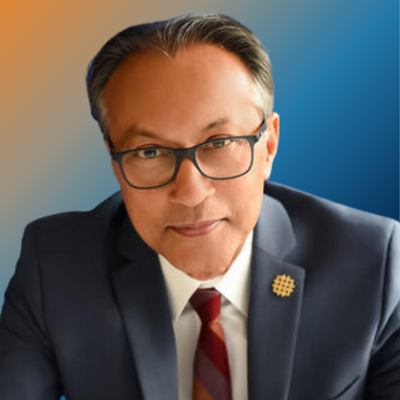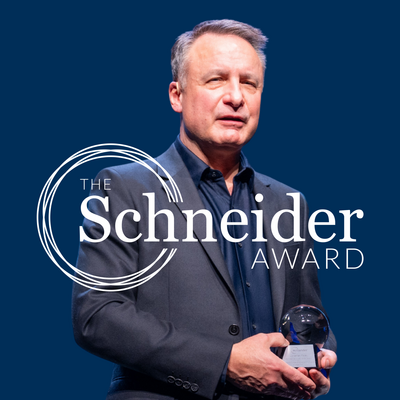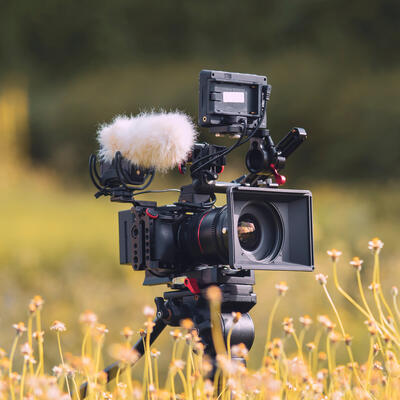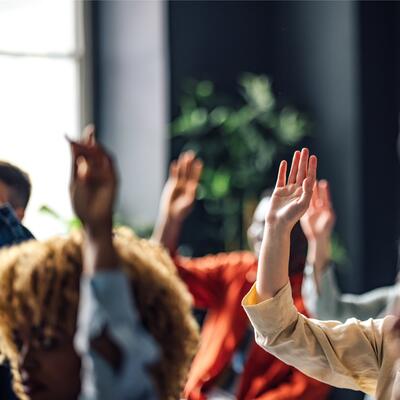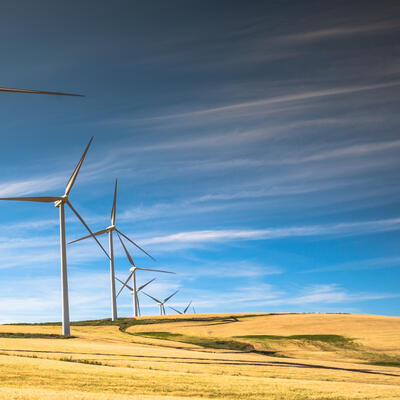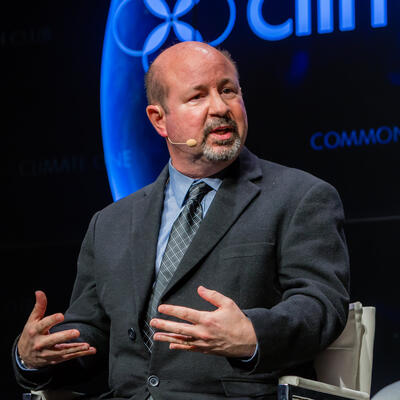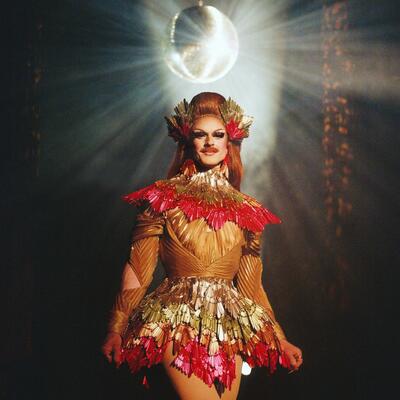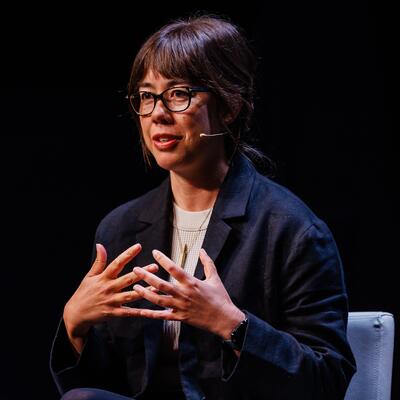
Solutions That Work With Grist, Project Drawdown and Jenny Odell
Guests
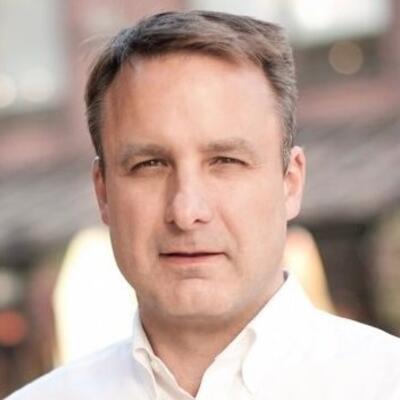
Jonathan Foley
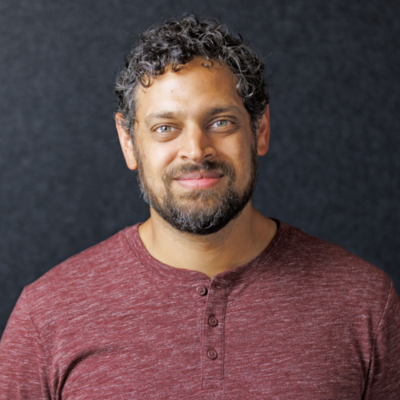
Nikhil Swaminathan
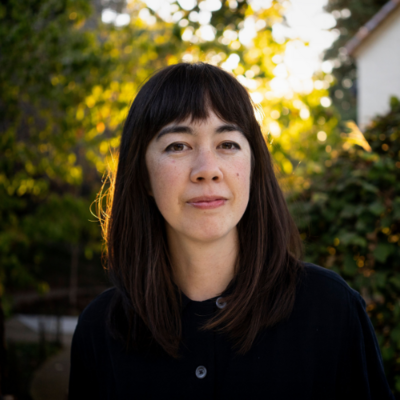
Jenny Odell
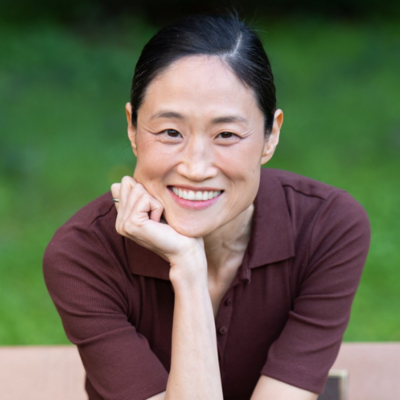
Mina Kim
Summary
We are seeing the impacts of our warmer climate nearly every day. And as federal climate action stalls, it can be easy to feel despair. But Jonathan Foley of Project Drawdown says we already have all the tools to address this crisis.
“The good news about climate solutions is that we have so many, that we have everything we need, right now, already to solve climate change. We don't need to invent anything new to actually stop this problem.”
Nikhil Swaminathan is the CEO of Grist, a nonprofit online newsroom. In addition to covering climate solutions, he says they’re increasingly working to localize their climate reporting, working with local newsrooms around the country, “because we want to be able to create a drumbeat of stories for a local audience. But it also allows us to paint a sharper image of the climate story for a national audience.”
He’s optimistic about addressing climate change in the long run, in spite of our current moment: “the energy transition is going to happen because people whose shareholders care about it and whose bottom lines matter want to make sure their shareholders are happy and their bottom lines are healthy.”
Still, finding the way to those solutions and implementing them can be difficult, especially when our society seems to value money and time above all else.
“ Everywhere you look in the sort of history of clock time, it's impossible to actually extricate it from the history of what has gone wrong with the climate, which is like extraction, like an extractionist mindset,” says author Jenny Odell.
“If ‘time is money’ is a language, it's also part of a worldview and it's a worldview in which people are resources to be exploited. The earth is a resource to be exploited,” she says. And our sense of time also shapes our response to climate change.
“The sense that we're locked in, you know, the future…has been painted already, that actively saps energy and imagination from people in the sense that they have any kind of agency. And I also think it's extremely isolating.” Odell recommends shifting how you approach time itself, to find a sense of possibility and unity by working together with others.
Episode Highlights
02:30 – Bringing climate change home to people
04:30 – Localizing content and reporting
06:30 – We have everything we need to address climate now
10:00 – How Project Drawdown evaluates climate solutions
13:00 – Deploying the easy solutions first
16:00 – Right to Repair movement
19:30 – Changing the conversation about climate change
25:00 – Understanding trade offs when covering climate solutions
29:30 – How to cover climate problems and solutions during the current Trump administration
35:30 – Jenny Odell on declinisim and how that relates to climate change
39:00 – Alternate ways of viewing and experiencing time
45:00 – Limitations of “standard” ways of viewing time, in productive/capitalist mindset
47:00 – Thinking about climate change as a present challenge rather than a future one
Resources From This Episode (4)
Full Transcript
Note: Transcripts are generated using a combination of automated software and human transcribers and may contain errors. Please check the actual audio before quoting it.
Ariana Brocious: I’m Ariana Brocious.
Kousha Navidar: I’m Kousha Navidar.
Ariana Brocious: And this is Climate One.
[music change]
Kousha Navidar: Ariana, you just got back from the Society of Environmental Journalists conference, right? How was it?
Ariana Brocious: Oh it was great. I got to catch up with some old friends and make some new ones, and learn a lot from our fellow climate and environment journalists about new tools and big stories right now. It was inspiring and also at times kind of dark – there’s a lot of bad and hard news out there when it comes to federal rollbacks, pollution, and environmental injustices – not to mention the climate crisis.
Kousha Navidar: I know. While you were at the conference, I was in San Francisco with Climate One during SF Climate Week and it sounds like there was a similar vibe there. Things are… not.. great… It’s so easy to spiral into a climate doom loop. But solutions DO exist!
Ariana Brocious: Yes and in times like these it really helps to get perspective from those who’ve been in the field a long time, and also people who approach things from a different frame altogether.
Kousha Navidar: Totally agree. I had the chance to sit down with two climate big thinkers: Jonathan Foley, executive director of Project Drawdown, and Nikhil Swaminathan, CEO of Grist, a nonprofit online newsroom covering climate, energy and environmental justice. We talked in front of a live audience at the Commonwealth Club in San Francisco about how climate solutions are moving forward – even in the US – despite dwindling federal support and funding for climate work.
Jonathan Foley: I think in the last 30 years a lot of the climate conversation has changed partly because of Mother Nature. You know, it's no longer an abstract notion that, well, it might change in the future. It's changing now right in front of us. Nature is a better science communicator than we are in the science world sometimes. So, that's one thing that's changed, but also I think we've gotten better at kinda bringing it home to the kitchen table issues that people really care about. And talking about abstract notions, like how many parts per million in the atmosphere, What the hell does global average temperature mean? You know, nobody lives there. I don't know where that is, but I do know where San Francisco is and what's happening to my kids, what's happening to the air I breathe, to the weather patterns here, what's happening to fires and landslides and things. So it is kind of bringing it home to the real here and now. And that enables a whole different, much more, compelling conversation, with everybody, not just scientists and policy wonks. And I think that's where we need to go much more is, you know, tell real stories.
Kousha Navidar: It's tough though, right? Because there's a balance there. I mean, we're talking about something that we at Climate One do every week, and you want to be factual. You want to make sure that you are equipping people with knowledge to have the right context, and it's hard to find that balance. So I guess for Nikkhil, you do this every day. How do you find that balance then?
Nikhil Swaminathan: At this point, everything we do is driven by the science. The science is behind everything, right. If you want to. Write for grist to report for grist, you have to understand climate. But that's all operating in the background. There was a period of time where we're talking about climate change as this distant threat, and now we're talking about it as a lived experience. We're talking about it's ungodly hot in Chicago and there are opening cooling centers because a big percentage of the population on the south side doesn't have air conditioning. And you're able to not only see it is unlivable outside, but there's actually parts of our society who are suffering more than others. And that part of the story is the part that's going to impact people. I think the other thing that we find is like grist has moved into more like local news.
Kousha Navidar: Right. With local, you can bring it to what's happening right. In your community, right in front of you. What does Grist do to help focus on that, that local perspective?
Nikhil Swaminathan: So we do two really big things. One is we syndicate our content. Maniacally, I think is the verb I would use. Anybody who will take it, we treat it as a public good, we'll move it anywhere. We're happy when Time Magazine picks it up. We're happy when Wired picks it up. We're especially happy when the Stevens Point Journal in Wisconsin picks it up and other, small newspapers around the country because they have ideologically diverse audiences that you cannot create anymore. And we also work with local newsrooms to place local news reporters because we want to be able to create a drumbeat of stories for a local audience. But it also allows us to paint a sharper image of the climate story for a national audience. So that's a place where we can have our reporter in northern Michigan talk about, I bet you didn't know this, but Traverse City, Michigan is the cherry capital of the world. I didn't know that, but that's what –
Kousha Navidar: I learned something new.
Nikhil Swaminathan: That's how they talk about Traverse City, Michigan. That's the cherry capital of the world. So climate change, you know, change the patterns of how the winter was in the early spring, decimated the crop this year and our local reporter told a story about the drop in the cherry harvest. And that's something that connects to people's lived identity to where they live, to what's important to their community, and who cares if climate change is in the bottom half of the article. You've already touched them in an emotional center, and then you know, that's the spoonful of sugar that helps the medicine go down.
Kousha Navidar: Spoonful of sugar also, you're making that bridge, right? Yeah. Between the context and the personal. And we're here to talk about as well, solutions. So I want to get into the solutions part of the conversation too. Jon, for you, what solutions really excite you right now in the climate world?
Jonathan Foley: Well, the good news about climate solutions is that we have so many, that we have everything we need by the way, right now already to solve climate change. We don't need to invent anything new to actually stop this problem. It would help to invent some new things to make them cheaper, faster, better. That's great. But we do have what we need. So our choice is that it's still a choice about the future. Do we want to have a lot of climate change or do we not? That choice has not been taken away from us at all, so we make a good choice here. So I'm excited about that, first of all. But most of all, I'm excited by the kinda low tech solutions that offer a lot of other benefits. Sure we could end up, you know, addressing climate change, but the great news about addressing climate change is we also build a better world in the process. That's kind of awesome, isn't it? Imagine going to the doctor and they're like, wow, you're really sick and I'm gonna give you this medicine, but, and its side effects are, you're gonna feel better. it. You're gonna feel better.
Nikhil Swaminathan: You’re gonna grow six inches.
Jonathan Foley: Yeah. You'll feel better. You'll be taller, you're gonna be better looking. You're gonna have more money in your wallet. I mean, they're like, wow, this is great. Yeah. You know? So climate solutions are like that. So I like the kinda low tech solutions that like, hey, this saves money, this cleans the air. This creates jobs. These are incredible things. But I think we're focused a lot on a couple of sectors. We focus so much on electricity because I think people understand plugging something in at the end of a wire is either a coal or a solar panel. Okay, that's understandable, but that's only a quarter of climate change. The things that keep me up at night about climate change are actually other sectors like food. Food contributes a third of our greenhouse gas emissions, but it only gets 3% of our climate funding and a lot less climate reporting except at Grist and Climate One, you guys do it well, but a lot of places don't even mention it. So we gotta think about that. We also have to think about industry. There are a whole bunch of things that we don't know how to solve yet exactly in like cement, steel, landfills, wastewater treatment. Those are things that actually those won't be solved with a solar panel in EV or a heat pump. So there's some sectors that are doing really well, some others that need more attention, and I'm excited about some of those solutions. And finally I'm really excited about what I like to call the “emergency break” climate solutions, the ones that are especially fast because we're kind of falling behind the pace we need to, you know, be doing to avoid really bad climate change. But we could catch up if we focused on the fastest solutions, things to deal with methane in particular, 'cause methane's a fast acting greenhouse gas, but also things that deal with deforestation because deforestation emits all of its carbon at once. When you prevent deforestation, all of the benefit of stopping deforestation happens on day one. A solar panel, you gotta wait 30 years for it to give you all of its, you know, impact. But on deforestation, you get it all today. So these kind of emergency breaks, if we pull those really hard things like methane, refrigerants, black carbon, deforestation, those kind of solutions, those might be able to kind of steer us back on track. By catching up a little bit, and we need to put a lot more money and attention on those solutions.
Kousha Navidar: I'm hearing like low tech, I'm hearing the right industry at the right pace. The emergency break that you're talking about, I'm sure there are big promises that are made in the right, I'm thinking like carbon capture, for instance. How much does it actually work? But there's a lot of support in it. You must look at different proposals, different ideas, all the time at Project Drawdown. How do you kind of differentiate between greenwashing I guess I would call it. And things that actually hold promise.
Jonathan Foley: Well, we've tried to be very, very careful 'cause we are a science-based neutral, non-partisan, non-commercial. You know, we're trying to be the consumer reports for climate change. Because you know, we're talking about a multi-trillion dollar problem. Maybe we ought to know what we're doing. Might be, might be helpful to know what works and what doesn't, right? And so we look really carefully at the evidence, not just our studies. We look at everybody's studies. We synthesize every paper ever written in science, engineering, technical, economic literature, all the data, and bring it together and say, Hey, does this actually work? And if so, how much would it cost? And how long would we have to wait for it? And when you crunch the numbers, you just find some stuff, just doesn't work. Most of the carbon capture schemes being proposed, at least the industrial carbon capture schemes, just one. They defy like laws of thermodynamics, they just don't work at all. Or they're like a fig leaf for oil companies basically 'cause they're, you know, the carbon, whatever carbon they capture actually is used to pump more oil and gas out of the ground. And so these things just are crazy. Most of the time when you look at them with a few exceptions, there might be a few ideas that could work pretty well, but mostly not. And we also see a lot of other kind of high tech shiny objects being thrown our way. Especially, you know, in places like San Francisco with a big kind of tech community. You know, the tech bros are great sometimes, but it'd be helpful if you kind of stopped and learned the science about what you're doing instead of just pitching something you don't know much about. I hear a little quiet applause out there. Yeah.
Kousha Navidar: I hear snaps.
Jonathan Foley: Yeah. Yeah. But now we need new technologies sometimes of course, and better technologies that make things practical and more affordable and more equitable. That's great. But the worst possible thing to do is wait for some future tech solution that isn't going to arrive. A friend of mine once said, you know, if your house is on fire, you grab the hose. You don't talk about, let's disrupt the fire suppression business. You know, like. No. Grab the bloody hose, you know, and if new technologies come along in the future years, great, we'll put them in the toolbox. But in the meantime, we have to get going and waiting is the worst possible thing to do.
Kousha Navidar: Nikhil. When John said the fire hose metaphor I heard you go, “Yeah.” What did that bring up for you?
Nikhil Swaminathan: I think that there's a lot of conversation around technological solutions, and it doesn't surprise me that if you spend any amount of time with an IPCC report, you kind of come out of it being like, we need it all. Like everything. That's kind of true, but you also have to use the tools that are available to you right now and I think John just like mentions a lot of smart ones, like, look. Methane in the short term, is so much more potent of a greenhouse gas than carbon dioxide. You plug abandoned oil wells, you figure out ways to, to give industry what they need to make sure that natural gas isn't leaking through natural gas pipelines. You address food waste. There's this whole suite of phases that we have to go through that I think as a society, we haven't even sort of taken the first step collectively. I remember I used to live here in Oakland and we had curbside composting, and now I live in Atlanta, Georgia. And I'm like, what do I do with all this? You know, I have two children. They generate intense amounts of food waste, like just. And I eat some of it, but like can't eat all, all of it –
Kousha Navidar: Like out of the garbage or?
Nikhil Swaminathan: No, no, no. Whatever they leave on their plates. So, you know, we pay extra for a composting solution. Like, that's, that's so low hanging fruit. It's like, it is the lowest of the low hanging fruit in terms of like what we as a society could be working towards. Like who out there is against taking food out of a household or a restaurant that's not used and giving it to people who need it or composting it like that feels totally apolitical to me. So why can't we at least get out of the door with that? And then we can worry about carbon capture and direct air capture and all that stuff later. There's just so much in front of us.
Jonathan Foley: You're absolutely right. I mean, there's so many bloody missed opportunities. That are like, kind of duh, you know, and I often say like, you know, stopping climate change is at least one third stop doing stupid stuff. You know, like 40% of the food on this planet is never eaten. That's absurd. You know, and we can compost some of it better off, better yet prevent it in the first place. I think we can agree on that. Or like, you know, can we insulate the attics of senior citizens in America to help them reduce their energy bills or something? You know, just stop being so wasteful on energy, materials, food, land, et cetera. Like, can we agree on that maybe? and I think the answer is actually yes. But we haven't actually been very strategic about climate solutions. We've been smearing peanut butter on toast evenly. We're not really designing climate solutions, to the local level. Like what would be the most appropriate things to do in Atlanta versus Oakland? It turns out it's a very different mix of things. So how do we kind of bring it home to the local level where actually most stuff actually really happens Instead of circling the beltway all the time and pretending that's where all the action's happening too.
Nikhil Swaminathan: I'll give one other example, which I think has kind of cut through our current political sadness. And that's like, there's a burgeoning right to repair movement and the ability for people to make their electronic devices last one year longer, two years longer. Like the waste from those contributes to climate change and being able to hang on to them for a little bit longer. Fix it. Try to fix it yourself. Is it's powerful and like, you know, Ohio is taking it up now. People want to save that money anyway, they don't wanna buy another thousand-dollar iPhone. So like these right to repair movements are really important. Like, why don't we have a right to repair movement for food waste? Why don't we have it for deforestation? Like all of these, all of these first order solutions, like, let's, let's do them and just like get going.
Kousha Navidar: Well, I also,
Nikhil Swaminathan:and I don't feel like they have to be necessarily tied to climate change. Right. To repair can be like your right. To not have to give in to planned obsolescence, you know?
Kousha Navidar: You’re listening to a Climate One conversation with
Nikhil Swaminathan of Grist and Jonahtan Foley of Project Drawdown. Coming up, how to reframe fears around losing momentum in addressing the climate crisis:
Nikhil Swaminathan: The energy transition is going to happen because people whose shareholders care about it and whose bottom lines matter want to make sure their shareholders are happy and their bottom lines are healthy.
Kousha Navidar: That’s up next, when Climate One continues.
Ariana Brocious: Help others find our show by leaving us a review or rating. Thanks for your support!
Kousha Navidar: This is Climate One. I’m Kousha Navidar. Let’s return to my conversation with Jonathan Foley, executive director of Project Drawdown, and Nikhil Swaminathan, CEO of Grist. Before the break we were discussing climate levers that should be nonpolitical – like composting or subsidizing home insulation, and localizing them to given regions of the country. I asked them what’s standing in the way of such projects.
Nikhil Swaminathan: I mean, we are in the middle of this conversation in a different context. Right now, global versus local. Globalization is evil. It took away the jobs in this locality, ipso facto tariffs. And it's a similar kind of conversation around climate change. There's a macro and there's a micro, and the macro is, there's too much carbon in the atmosphere. And the micro is, I live in Kentucky and it floods every two years, like biblically floods and that didn't used to happen. I live in California. There are wildfires. I live in Georgia. There are extreme heat days, you know. It looks different everywhere. The solutions are a little different everywhere. As he said earlier, like difference between Oakland and Atlanta. And if you make it a local issue, then it's about jobs in your economy. It's about lowering your electricity bills. It's about creating freedom. Guess what? You put solar panels on your roof. You get to, you know, kind of thumb your nose at your utility. There's just all, all these ways of talking about how you can improve a local economy that are climate forward, but if you spend too much time talking about it as a global issue, then there are other people who can step in and solve it.
Jonathan Foley: Well, yeah, I mean, I was just thinking of an example. We talked about backstage a little bit. So I used to live in San Francisco for about six years and then I moved back to Minnesota where I lived before. And then I ended up moving to a very rural part of Minnesota, which overwhelmingly voted for Donald Trump and is full of Republicans. And my San Francisco friends just couldn't believe it. They're like, oh my God, how can you live there? How could you, how do you talk about climate change where you live now in that deep red county? I'm like, actually it's a hell of a lot easier than it was in San Francisco because here people were all kind of posing and being kind of signaling each other about how virtuous they were about climate change, but not actually doing as much sometimes. Sorry. But you know, talk is one thing, but walking the walk is the other. But where I lived later, I didn't lead with climate change. But people would often ask, so, Hey, what do you do for a living? I'm like, well, I try to work on things that help communities be thriving, how to create jobs and how to lower the cost of living and how to create more thriving communities in addressing the climate problem we have around the world. And to make sure places like our part of Minnesota are competitive in the global economy moving forward. And then we move forward at a 21st century economy. And people look at me like, yeah, yeah. You know, I'm, I'm really interested in that. Tell me more. And you know, these are people who probably wouldn't vote the same way as I do, but they certainly wanted to hear about jobs.
They wanted to hear about stronger communities. 'cause we're watching rural America feel left behind and die in the vine. That's why people are so angry. You talk about opportunity, you talk about jobs, you bring it down to the kitchen table. They're right there with you. and look at where most of the renewable energy projects are. Look at where funding for clean energy goes in this country. It's red counties in red states, because that's where the sun is, that's where the power lines are. That's where the geothermal will be. That's where the wind is. And so I think we don't have to have this, you know, Washington dominated, UN-dominated conversation of left versus right. That's a media invention in the real world. You get down to the kitchen table, people don't actually talk like that. They care about their communities, they care about their kids. And if you meet them where they are and talk about these issues in a respectful way and listen, you find you can have a great conversation and move forward at the local level. And I really, really think that's what we've been kind of missing is maybe we need to provide a lot more context of, you know, how to have local conversations. That really hit home locally. Like, you know, how does this benefit you here and what do we do? And don't lead with carbon, lead with jobs, leave with quality of life, leave with health, communities, kids, things like that.
Kousha Navidar: I hear so clearly this emphasis on local, on meeting people where they are. There's nuance to solutions too. Like there's reality, right? And I wanna talk about that for a second. At Project Drawdown, I'm sure that you see this every single day, mining for instance, lithium cobalt linked to human rights violations simultaneously seems like it's necessary for us to mine those essential items in order to get off of fossil fuels eventually. So what do you make of that? How do you, how do you balance the good? Because, you know, you talk about this prescription drug that'll make you grow to six feet, which would be great for me. And then you're able to like, you know, dunk on everybody at basketball. There are side effects to it. Right?
Jonathan Foley: Yeah. Well that's one that's brought up a lot is the challenges of batteries. So we hear a lot about that, like cobalt to lithium, these other materials that things like batteries are made out of that, you know? Yes, we absolutely need to address the kind of human rights and environmental issues related to mining these materials. Absolutely no question about this. This, by the way, is a very solvable problem. You know, a billion dollars or so would solve it, period. Nothing will solve the fossil fuel problem. You can't solve that without destroying the planet, basically. So compare one where you know, we have untold unmitigatable damage forever versus a problem we could solve if we aren't so damn greedy. And by the way, cobalt is primarily used in fossil fuel mining. Not in our batteries. You know, that's, that's a little why the fossil fuel industry doesn't want you to hear about, but it turns out that most of the cobalt isn't used in your batteries. And also, we didn't invent batteries to solve the climate problem. Look at your phones, look at your laptops. They've been around a long time. So we have a real problem here, and fossil fuels aren't just contributing to climate change. The air pollution associated with fossil fuels alongside CO2, but the, you know, the particulate matter, the soot and the smog that are produced by burning fossil fuels contributes to about eight or nine million deaths every single year. So fossil fuels are estimated to kill eight to 9 million people a year on this planet. That's more than all the tobacco deaths, gun deaths, and warfare deaths. Combined. So let's compare that versus mining. Now, mining is dirty. It's messy. It's horrible the way we do it right now, only because we're greedy. So let's solve that. And we shouldn't shy away from that. We should not ignore that, but we can solve that if we put a little bit of money and some better regulations around this, and also some good engineering. We also only have to mine those once. They will never have to be mined again. But coal and oil and gas, you keep on mining, you keep on dying.
Kousha Navidar: Yeah. Nikhil, I wanna get your perspective on that because reporting on these solutions I'm sure requires a lot of nuance. I mean, I'm thinking of Unearthed, the mining issue from Grist, a series that looks at exactly what Jon is discussing. How do you make sense of that dilemma in reporting?
Nikhil Swaminathan: I think what was important about the mining issue, and I think what's important about all solutions reporting is that you have to understand that every decision that you make is a trade off decision. And a lot of times when we talk about climate action and we talk about the energy transition. We talk about everything about creating a more sustainable planet. We allow ourselves to talk about it in a way that involves magical thinking. And I think it's really important to say, okay, if we move away from fossil fuels and we move towards more solar panels, the energy transition, then we have to reckon with the mining problem. And one way to do that is to do more battery recycling so that you can pull those minerals out again and reuse them. But exactly what John was talking about. So what was important to me about the mining issue was like we were looking at the fact that those people who want to bring about the energy transition, which I think is probably everybody in this room. We are talking about a future that involves these minerals and these are the realities of the minerals and we might as well deal with them. and hopefully in the way that Jon talked about like safer mining, you know, recycling them more actively. Similarly, you know, the ref main refrigerant in heat pumps is actually much like methane, in the short term, a really intense greenhouse gas, so yes, it's overall more efficient. You know, we're using less electricity, et cetera, et cetera, but we have to fix the refrigerant too. And solar panel waste is an issue and so we have to deal with that. And there are issues around wind turbines. So like anytime you're talking about this, you have to be honest about what the trade off is.
I mean, induction stoves are awesome. I have one at home, I can boil water in 90 seconds or less. That trick never gets old. Guess what? You wanna make something in a wok on your induction stove?
Kousha Navidar: Tough.
Nikhil Swaminathan: It's not it, you don't get that char that you get from gas. That's a reality. It's a trade off for me. I don't care. I can't use a wok anyway, you know. So –
Kousha Navidar: You're eating your kids' –
Nikhil Swaminathan: Like I'm eating, you know, a half eaten peanut butter sandwiches.
Kousha Navidar: Yeah.
Jonathan Foley: There's a joke about walking the walk here.
Kousha Navidar: Oh, nice. You heard it on Climate One, puns galore! In like the five minutes we got left, I want to make sure that we touch on this moment too, 'cause I'm sure what's going on is on everyone's minds. And, and so, Jon, for you. The federal government is pulling back in all different kinds of ways. Uh, we're looking at what the path forward is. When we talked earlier, you had a wonderful metaphor that I'll let you explain if you'd like, but this idea of a chess board and where you look at the pieces, can you just talk a little bit about what pieces you think we can put into play now? How you think about that?
Jonathan Foley: Yeah. Well, lemme back up a little bit. For the last 30 years or so, at least the narrative, I've heard a lot about climate change and the environment is, gosh, if we just vote for the right guys on election day, they'll be enlightened and virtuous and good, and they will do the right thing and then they'll send the right representatives to the UN and then they'll hold hands and save the world. And I'm like, well, how did that work out for us? Isn't that the definition of insanity? Just keep repeating the same thing and expecting a different result. So for three, four decades we've been kind of hoping this kind of political class of enlightened people will save us. It hasn't worked out especially well. So I'm getting to look, uh, like when you play chess, there's an expression, see the whole board. So, okay, the bishop, the king, the queen, whatever. One of the pieces isn't working anymore. Maybe you lost it. Maybe it's in the wrong part of the board. Whatever. There are other pieces on the board. You don't give up the bloody game. In fact, you weren't playing it very well to begin with. If you're only using one piece and one move. There's all sorts of pieces that work differently and have different moves. So I look at the whole chess board and think, wait a minute. It turns out most of the stuff we do in climate change isn't just the federal and UN-level policy makers. It's also business leaders and investors and philanthropists, and most of all community leaders and activists and artists. And just neighborhoods and households and communities and we all have all these levers in front of us. How dare we just kind of give up on that and abdicate our responsibility to some, you know, jet-setting crowd of diplomats that hopefully will have our best interest in mind. So let's play the whole chess game. And from opening gambit to checkmate, there's a whole lot of levers and a whole lot of pieces that we haven't even begun to deploy. And that's where the game's gonna be won.
Kousha Navidar: And I love that metaphor and I'm wondering Nikhil for you, when you look at reporting in the current Trump administration. How do you look at the chess board, so to speak? What does it mean for your reporting?
Nikhil Swaminathan: Well, it's interesting because going into the Trump administration, I think obviously we had to focus on what was coming outta Washington and making sense of what was important to report for people and how it was gonna affect communities because. You know, we need to trace the end effects of all of these policies. Like there are, communities in Louisiana and Cancer Alley that are at more risk, you know, in the coming years than they were even six months ago. At the same time we were thinking of looking to state and local governments for progress, at least on the policy side. And Trump took a swipe at them, you know, pretty recently at state and local climate laws, which, I think is probably far beyond his jurisdiction. And we'll get litigated in court. But like,you mentioned “Cheaper, Faster, Better,” which is the name of Tom Steyer's book that came out last year. And I interviewed him at the Texas Tribune Festival and I said, okay, if Trump gets elected, what happens? More expensive, worse, slower? And he was like, no, this faster becomes slower. That's really the part that gets it. affected here. And so, yes, we have these laws on the books in New York State where they can go after fossil fuel companies for the damage that they're causing. And it's gonna be held up in some litigation. Like the Trump administration is gonna throw a roadblock against that, but it'll probably stand and they'll continue to be able to do it. you know, congestion, pricing, same thing. The cap and trade issue here. we're gonna be fighting for a lot of state and local laws that we're gonna be part of the solution over the next four years. and then we also have to look at the fact that like the economics of all of this is at our back. You know, the energy transition is going to happen because people whose shareholders care about it and whose bottom lines matter want to make sure their shareholders are happy and their bottom lines are healthy. You can't bring back coal, like good luck. Yeah. So, there's plenty for us to look at and it's so important right now that we be tracking the solutions that are out there, the people who are developing them, the communities that are deploying them, et cetera. Because like people, who care deeply about this issue, like they need to be. Seeing that progress has not halted.
Kousha Navidar: That was Nikhil Swaminathan, CEO of Grist, and Jonathan Foley, executive director of Project Drawdown. They joined us for a live conversation during SF Climate Week.
Ariana Brocious: You’re listening to Climate One. Coming up, a writer says the way we think about time can limit how we view our possible futures:
Jenny Odell: So the sense that we're locked in, you know, the future is, is sort of, has been painted already, that actively saps energy and imagination from people in the sense that they have any kind of agency. And I also think it's extremely isolating.
Ariana Brocious: How to change that kind of thinking when Climate One continues.
This is Climate One. I’m Ariana Brocious.
One of the best parts about SF Climate Week is that we get the chance to speak with all kinds of people approaching climate action from so many different angles. It’s a reminder of just how diverse and creative the ideas can be.
Jenny Odell is an artist and author of the New York Times bestsellers “How to Do Nothing: Resisting the Attention Economy” and “Saving Time: Discovering a Life Beyond the Clock.” We invited her to a live conversation with KQED’s Mina Kim on the Climate One stage. Kim asked Odell how she goes about reimagining her relationship to nature in a world driven by productivity and capitalism.
Jenny Odell: I'm deeply in love with these things that I'm observing. But with that comes a sense of responsibility and also dread, like I talk about going to Elkhorn Slough and seeing all of the birds and just, and crying because I'm thinking about how vulnerable it all is. And then on the other hand, I was also thinking a lot about, I. someone who maybe reads how to do nothing and agrees with the ideas, but just doesn't have time, doesn't have control over their time, just doesn't have the resources to, you know, inhabit this contemplative state of mind.
And so time in both of these scenarios, I think like time feels like the enemy in a way. And it sort of, existed as a thorn in my side for quite a while. and then it became like an interesting thorn and then I was like, oh, maybe like this is actually time is the thing that I need to think about directly and try to write about.
Mina Kim: Yeah, I really related to that, that dread and thinking about that dread and its relationship to time, and I was so grateful when Climate One asked me to talk with you about it because it does feel very much of the moment. One of the other things that I really related to in saving time was your description of that day that we probably all remember when the sky turned orange and it made national news and it felt dark and apocalyptic. And it gave you nightmares, right?
Jenny Odell: Yeah. I wrote about just having, I mean, I'm sure I'm not alone. I had many nightmares about fires, people running away from fires, you know, like me running away from fires. And I, I also include some journal entries in that chapter of just this like total sense of like an inability to see even a horizon. Like to even, like, it's not even like I have a problem with the future. I can't even imagine the future. And I feel like that day just even visually kind of encapsulated that feeling where you could not even see into the distance.
Mina Kim: You described your nightmares, as an internalization of declinism. What is declinism? What did you mean by that?
Jenny Odell: I mean, my understanding of it is that it's just kind of like the sense that you're, you're strapped into the end, right? Like, it's almost like a feeling of like, get it over with. and, and that it's that what you're looking at in the future is a decline. There's no sort of negotiation about that. It's very linear. and I think what's crucial for me to understand about that is the way that the time appears between now and that future. It's sort of empty, right? It's like, um, looking across like a flat desert with nothing in it. you know, like looking into the distance and you're like, well, soon I will be over there.
But you're imagining that you over there are, are you now, like, you're sort of like putting yourself over there, whereas like the, the truth is there are many things that happen on the way there. I. I think conversations are another really good example. If anyone here has ever tried to plan a conversation that they were gonna have with someone, it's like it never goes that way.
And the reason it doesn't go that way is because the person's responding to you. You know, so like you, you actually are changing throughout the conversation. and it's absolutely true that there are things that we know are going to happen. There's a direction that things are going in, but that's not the same thing as being able to tell the future.
Mina Kim: So that's why you were saying that declinism is probably one of the more dangerous forms of linear deterministic time reckoning that there is.
Jenny Odell: Yeah, because it doesn't, it leaves no room for agency, for creative response. I mean, humans have done terrible things on this planet, but we also are full of ingenuity. There is a danger in seeing things as so linear that you are closing down all of those responses. And as I write about in that chapter, no one loves dec declines more than fossil fuel companies. So yeah, because, because they don't, they are very invested in their, the only possible future being one in which we continue burning fossil fuels in the same way.
Mina Kim: Yeah. And then also that inability to really have agency creates a sense of nihilism, right?
Jenny Odell: Yeah. Like there is no, there is no longer any reason to do anything. There is no reason to try to imagine anything different. it just really, I think, like closes down a sense of possibility. and it's very different from an understanding of time in which. No moment is the same and each moment holds some kind of possibility. I mean, if you think, I always find it very inspiring to go backwards and think about all of the people who are fighting against odds. Really tough odds for things that we take for granted now. And if you were to go and talk to that person, then I. They didn't know what was gonna happen. They didn't know if what they were doing was gonna work. I mean, what if they were declinists? Right? Like, what would our lives be? So I always find that a helpful thought experiment. Yeah.
Mina Kim: Yeah. So then in some ways, was saving time a way to kind of save yourself from declinism? Like writing, saving time are looking for alternative ways of conceptualizing time
Jenny Odell: Yeah. Yeah. Maybe I should have called it saving myself. No. The title saving time, like I think what I was really. Yeah, in a related way, trying to do is like rescue a different feeling or sense of time from what we are all more familiar with, which is a very linear sense of time. Both, both in the sense of declinism, but also in the sense of like the clock and like labor hours and time as a resource to be squeezed. So I was really looking for other reckonings of time that could be helpful for thinking about the future.
Mina Kim: So. Where did you find it?
Jenny Odell: Yeah, so I, you know, I talk a lot about how to do nothing about birds. Um, and so there are some more birds in this book, but, geology also ended up being a really big piece of this for me. And, you know, really I use this phrase in the book, unfreezing something in time, which just means to choose, you know, a place or an organism or just some, something finite and put your attention on that, which a lot of people involuntarily did during the pandemic. and then, and it's that, that allows you to see change. In the book, I actually ended up choosing this one branch of a California Buckeye tree, which is my favorite kind of tree. And, um, it's, I, I chose one that I could. It was, you know, sticking out furthest towards the trail, so I could always see it. I passed this tree hundreds of times. and if anyone here is familiar with the schedule of the Buckeye tree, it goes dormant in the summer. So there's a period of time, it's actually right now when a lot of things are happening with this tree. You know, it's like growing a flowering stock. The little flowers are opening kind of one by one every day. Something about that branch looks different. and you know, it seems so simple, but I think it's worth emphasizing like that is what time is like at the end of the day. It's just like, it's life. It's just things that are changing.
Mina Kim: Yeah, I can see how the existence of other timescales could be really comforting, though at the same time, it could probably also be kind of disconcerting.
Jenny Odell: Yeah. It's both, I mean, at Fort Funston there's a, there's like a stripe of white. That goes, you know, through the cliff, it's very obvious if you, if you're standing on the beach and that is ash from a, you know, an ancient volcano, a volcanic eruption up near Lassen. and it's, you know, it's part of the cliff, so it's crumbling like the rest of the cliff. You can pick up a piece of this ash and just hold it in your hand and like, when you think about what, what you're really holding, right, like that, that too is time, right? Like that it's not a symbol of the past. Like that is actually the ash from that time.
Mina Kim: With so many ways to conceptualize time with so many examples around us of different timescales. How did we get to this point where we created essentially a clock and try to delineate it numerically?
Jenny Odell: Yeah. So the story of like clock time is very much bound up with the history of buying and selling labor time, as well as, um, colonization. There's a great, great book called The Colonization of Time that I really recommend and I really, really drew a lot from for that part of the book where the author is talking about. British colonists going to places that obviously have a, you know, develop fully developed sense of time. It's not clock time, it's more kind of, Attentiveness to seasons. Like what happens when, which is like very much tied to survival. Like you have to do things at the right time. and, and coming in and having to impose, ideas like the nine to five workday essentially, or like labor hours, the sort of sense of regularity. everywhere you look in the sort of history of. Clock time, it's, it's impossible to actually extricate it from. the history of what has gone wrong with the climate, which is like extraction, like an extractionist mindset. So what I'm really talking about is language, languages of time. and when I started out, I, I think I may have written in my book proposal that I wanted to think about clock time as an invasive species of time. and I think it is. But it's also a language, it's like an invasive language of time. And it was really interesting to go back and see that it had this origin and then it spread like, you know, literally geographically to these other places,
Mina Kim: Yeah, I wanna ask you about what you just said about how, this type of way of thinking about delineating and, basically using time as extractive. Extractive in the sense of people's labor, but also extractive in the sense of the earth. Can you say more about that? Yeah.
Jenny Odell: I mean, I think that it's. You know, if, if time is money is a language, it's also part of a worldview and it's a worldview in which people are resources to be exploited. The earth is a resource to be exploited. The earth is inert. It doesn't kind of show up as an agent, in, in this kind of worldview,it doesn't participate. It's not something that has rights. It's not something you can have an encounter with. and so I think. That is part of the reason why like those histories are so intertwined. It's like everywhere that you see, this kind of exploitation happening and the language of extraction. It's always both, right? It's like exploitation of labor and resources. Like it's part of the same logic of how one encounters the world outside of oneself.
Mina Kim: How has that time is money mindset, that extractive mindset, also stunted our ability to respond to climate change or the climate crisis?
Jenny Odell: I find that's something that I still think about. Every day. And I'm still trying to write about honestly. I think like anything that threatens our sense of that, that our actions matter is extremely dangerous because like that is exactly what we need right now. So the sense that we're locked in, you know, the future is, is sort of, has been painted already that actively saps energy and imagination from people in the sense that they have any kind of agency. And I also think it's extremely isolating. At least in my experience, like the times that I have felt that feeling the most acutely, I also feel very alone, even in the company of other people. For me, what's really important about the sense of possibility and time is the sense of possibility that emerges when you do things with others. Things that you can't imagine doing alone or just like, even the imagination part you can't do by yourself. and so I think there's something about that linear sense of time that. it can force you to sort of shut down and, and sort of stop looking around and start trying to imagine a response to the moment that you're in.
Mina Kim: Do you also think it stops us from. I don't know if trusting each other's right. To work collectively towards something. But I'm thinking about how we constantly have messages that are telling us, don't waste your time, protect your time. Right. Spend it with the people who are worthy of your time,
Jenny Odell: Yeah, absolutely. Yeah. One of the chapters in my book is kind of like a critical reading of hustle culture, like I call 'em Productivity Bros. And one of them literally says you wouldn't leave your wallet out on a table. So why would you just give people your time and he tells you to write the number 1440 and put it above your door 'cause that's how many minutes you have in a day. Like, it's just, you know, like this idea of this resource like slipping through your fingers. And why would you, why wouldn't you protect it? Later on in the book, I contrast that with an experience that I had with a friend of mine who's a gardener and she's trying to give me some lettuce. Because, I don't, I didn't understand this as someone who didn't garden. She needs to get rid of them so that the plant will continue to grow in the way that she wants. And I just could not compute, like, like if you give me more, you have more. And it, it just, it made me realize like how broken my mental mechanisms were for understanding anything that's not a zero sum game. And so later on, I think that same day, she also gave me some beans from a bean farm that doesn't exist anymore. And we were talking about it and she knew I was working on the book and I was trying to find a different metaphor for time that wasn't money and we're like, maybe time is beans, which sounds silly, but beans contain the past and the future. And she told me that she had given these beans to people. She bought them 20 years ago. She'd given them to people that gave them to other people. Now she couldn't get them anymore, but now she was getting them back. From those people, right? So like if you think about time less as this, like, yeah, I don't know.
It's like this idea that every day I wake up, I have a box that's filled with 24 cubes, you know, and then I gave you one and now I have one fewer. It's like, actually the truth is that someone might have done something in a moment with you like years ago, and now it's growing like in your life. and that's a very different way of thinking about interacting with people or like what you get out of like, a, a certain amount of time. Yeah.
Mina Kim: One of the things that you sort of discover is that if you can think about climate change as a present issue rather than a future one, that it can help reduce your climate dread. How does that work?
Jenny Odell: Yeah, one thing that I noticed, I think particularly when I was writing that about my nightmares about that day. Often in those dreams it was like there was a wall of fire in the distance and it was coming and it's like, we all know it's coming and it's like, it's, you know, nightmares. So you're powerless to do anything about it. But I think. The interesting thing about that was that it had not yet arrived, even though we all know that this has arrived, you know, but there's this feeling that it's somehow still, the way it's talked about or the way it's felt sometimes feels like it's this wall that's coming towards you. And then I think that's maybe paired also with an avoidance of seeing the effects around you that are happening. 'cause it's too painful. Like things like, I'm, I'm a birder. I live near Lake Marriott. I have noticed fewer ducks, of certain species that I really love.
And it's hard to, you know, like I, you know, maybe I'd rather walk past that and not, not think about it. But there's also a relief in a weird way. Like sort of touching down there and being like, okay, this is happening. This is happening around me. It's happening in a material way. Maybe there is some way that I can respond to this. This situation that's happening around me and like, no, that's not going to solve the climate crisis. But it is an action. It is doing something. It's often I think, bringing you together with other people. And I've been really inspired recently by volunteering on a native plant restoration project for the last year in the East Bay and really struck by these days where everyone shows up and, and is so heartbroken right now, especially, and yet this project has been quite successful. There are, you know, we always talk about there's different parts. There's like year, the year five area and the year three, and you can see a future that's actually better within that site. You know, like we, we did this work and things flourished and things responded. They often responded in ways that were unexpected. Like it's very humbling, right? It's also this reminder that. You do things and you actually don't know how they're gonna turn out. And they could turn out worse, but they could turn out better. and it's also, you know, 'cause you respect for the things that are growing up there as respondents, like they, they're alive, they are responding to things that you're doing so. You know, it's a, it's a very particular kind of position to be in. and that has been really, I, I think, you know, like in the most dismissive way to think about, it's like it's just a balm, you know, to go up there. But I think there is something else happening there.
Mina Kim: As you have been able to find and investigate and recognize all these other ways of living in time, or timescales, how has that affected how you create your art or write now, has it, has it had a lasting effect on that?
Jenny Odell: yeah, I mean, I'm writing a book right now about repair and so I think that kind of grows directly out of, where I ended up in saving time was, was this, I, the book literally ends with me sort of like looking at this, uh, purple Oak or Sea Star, up north and near Seattle.
And again, being kind of like. Like, it's so beautiful. It's so vulnerable. There's, you know, sea star wasting syndrome had been observed in that area around that time. and just this like sort of, I think I used the word desperate, like I'm, I'm desperate for this future and where the person reading this.
Does know what a purple Ocre, Z star looks like and has encountered one. and so I think I would describe it as like, you know how to do nothing. It's like it's the stopping, you're paying attention. And then now that you've paid attention, I. In the next book, right? You, you learn to sort of see a different kind of time, , and maybe, hopefully are able to sort of imagine the future more.
And then you get to like that's, I mean, that's where I am now kind of writing about like really then responding and thinking about repair as something that's not necessarily putting things back the way they were. Like repair can make something better than it ever was. , and there are many, many material examples of that, both ecological and just in the realm of like, your household tems. And so thinking about like repair as a mindset, as something that we could inhabit right now, that could be like sort of the way that you feel, way you feel your job is in the world.
Ariana Brocious: Jenny Odell is an artist and author of the New York Times bestsellers “How to Do Nothing” and “Saving Time.” She was in conversation with KQED’s Mina Kim on the Climate One stage during SF Climate Week.
And that’s our show. Thanks for listening. You can see what our team is reading by subscribing to our newsletter — sign up at climate one dot org.
Kousha Navidar: Climate One is a production of the Commonwealth Club. Our team includes Greg Dalton, Brad Marshland, Jenny Park, Ariana Brocious, Austin Colón, Megan Biscieglia, Kevin Lemons and Ben Testani. Our theme music is by George Young. I’m Kousha Navidar.
